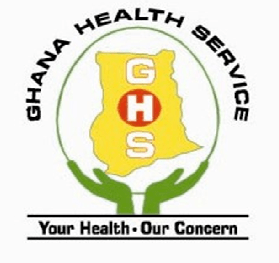Eastern Region Ghana Health Service battling high maternal mortality
 Dr. John E. Otoo, the Ghana Health Service’s (GHS) Eastern Regional Deputy Director of Public Health, has said the GHS is struggling to reduce or eradicate maternal mortality in the region.
Dr. John E. Otoo, the Ghana Health Service’s (GHS) Eastern Regional Deputy Director of Public Health, has said the GHS is struggling to reduce or eradicate maternal mortality in the region.
In comparison to the 53 recorded maternal deaths during the same period last year, he stated that there had been an increase of one in the number of maternal deaths from January to June this year.
Health experts describe maternal mortality as female fatalities brought on by difficulties during pregnancy, childbirth, 14 days following childbirth, or more than 42 days but less than a year following pregnancy termination.
Dr. Otoo was speaking at the World Population Day Celebration in Koforidua, hosted by the Eastern Regional National Population Council (NPC) and had as its national theme “Prioritizing Rights and Choices-Harnessing Opportunities, the Road to a Resilient Future for All.”
The national theme was derived from the global theme, “A World of 8 Billion: Towards a Resistant Future for All-Harnessing Opportunities and Ensuring Rights and Choices for All.”
“Our earth is in danger of overpopulation. Control the population and save the earth,” was the catchphrase for World Population Day.
Referring to the slogan, Dr. Otoo said, “It is sad for a mother to die after carrying a baby for nine months,” but added that the causes were being found and addressed.
He blamed maternal deaths on severe bleeding during pregnancy or antepartum haemorrhage, severe bleeding after childbirth or postpartum haemorrhage, and hypertension experienced by expectant mothers.
Dr. Otoo outlined some of the initiatives put in place to prevent the recurrence of maternal mortality, stating that facilities that recorded maternal mortality were charged with notifying the District and Regional Health Management Team within 24 hours and sending an audit report within a maximum of seven days.
A Maternal Death Tracking Committee consisting, consultants, the Maternal Death Coordinator, Eastern Regional Public Health Nurse, Deputy Director of Public Health and the Eastern Regional Associate Gynecologist to track the cause of maternal death and the short action plan was provided in the maternal audit report.
Mr Isaac Ter-Ibinibe Sopelle, Eastern Regional Population Officer, stated that it was high time they paid attention to women and girls’ reproductive health by expanding access to reproductive health information for long-term development.
“Sexual reproductive health and rights are fundamental to sustainable development,” he said. “Women have the right to be informed and have access to safe, affordable, and acceptable methods of family planning of their choice and other methods of their choice.”
He also stated that women have the right to appropriate health care services that would allow them to safely navigate pregnancy and childbirth.
Ms. Juliana Abbeyquaye, the Eastern Regional Acting Director of the Ministry of Gender, Children, and Social Protection’s Department of Gender, stated that women should be allowed to exercise their freedom to choose.
She said some pregnant women in grave medical circumstances were obliged to obtain the agreement of family members or their spouses before undergoing medical procedures such as abortions, surgery, family planning, and others.
She said protecting women’s right to make their own decisions would make the world a better place, adding, “Let’s educate women and girls to seek knowledge about their rights.”
Every year on July 11, the World Population Day Celebration attempts to raise public awareness about diverse population concerns such as the necessity of family planning, gender equality, poverty, mental health, and human rights.
Source: GNA
